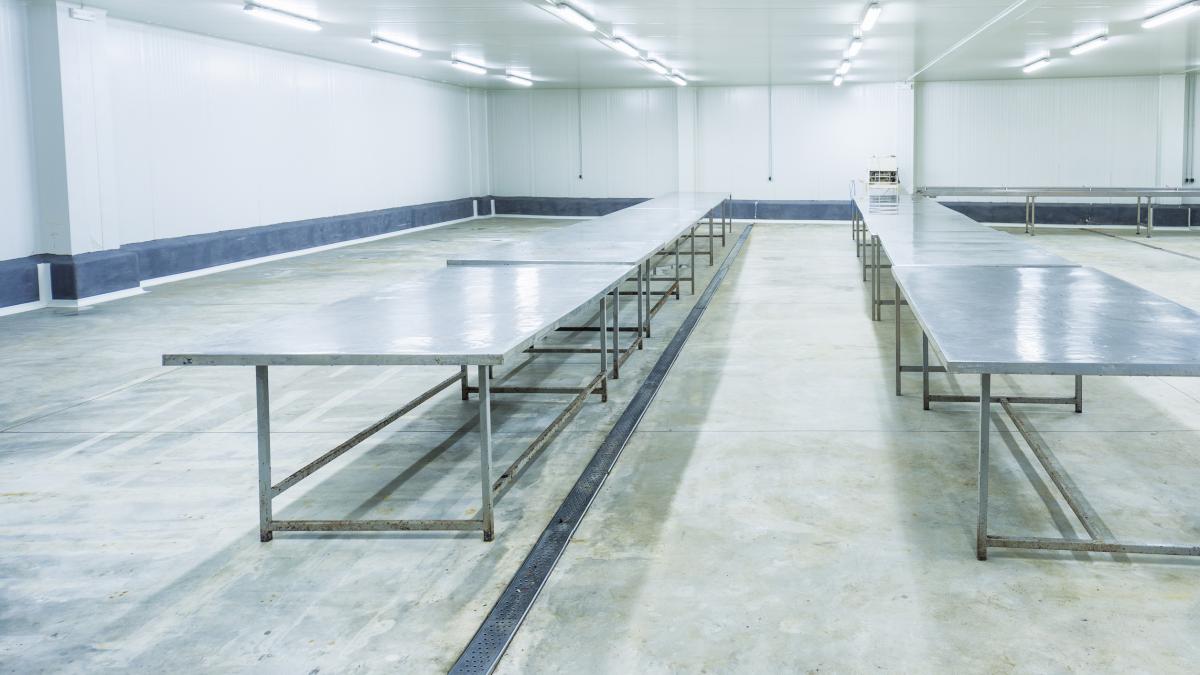
Photo of clean grow room. Photo credit: istock.
 Take note
Take note
Sanitation of tools, shoes, and rooms are essential for the overall operation. It helps prevent pests and fungus from appearing which reduces the number of products needed to eliminate pests and fungus.
Room sanitation requires everything to be removed from the room. All racks are cleaned and sprayed with sanitizer (35% peroxide), dusted, and cleaned from top to bottom. An ozone generator can be placed inside the room, set for 100 minutes, and left overnight. Ozone generators are used to sterilize an entire room without any lasting impact on the plants. The room will be ready to be used on the following day.
 Setup & use
Setup & use
- Place shoe scrubber in the room entrances.
- Pre-mix sanitizing solution and clearly label the container.
- Write down the cleaning steps.
- Establish the ozone generator procedures.
- Confirm that all employees involved in the room sanitation/turnaround are familiar with the cleaning procedures.
 Alert
Alert
Adjustments to the sanitizing solutions or cleaning steps may be necessary. Remember to consult with the ozone generator manufacturer to correct way of using the generator, determine the correct level to set the ozone, and obtain the safety measures when using the ozone generator. Remember to not enter the room when the ozone generator is turned on.
 Supplies
Supplies
- Isopropanol
- Hydrogen peroxide
- Labeled container for the sanitizing solution
- Shoe scrubber
- Ozone generator
- Cleaning supplies: rags, brooms
 Tips
Tips
- Adjustments to the concentration of the sanitizing solution may be necessary.
- Sanitizing solution concentrations will vary depending on what is being sanitized.
- Only trained employees are allowed to set up the ozone generator and inform other employees when the room is safe to enter.

Resources
National Pesticide Information Center
UMass Extension Greenhouse Crops and Floriculture Program
WorkSafe BC
We hope that you will be inspired you to incorporate solutions into your own training style, develop your own hands-on teaching tools, or discover new practical solutions. We hope that you are inspired to use these solutions in your workplace. Did you try one of the practical solutions or develop a new one? We would appreciate hearing about your ideas and experiences.
Thank you and safe pesticide handling,
PNASH
Contact your state agency for more information on WPS regulations. The content of this website is for informational purposes only. It may need modification to fit your needs or it may not be appropriate for your workplace. Safe use of these solutions is your responsibility. The University of Washington and the Pacific Northwest Agricultural Safety & Health Center is not responsible for any loss or damage resulting from the use of the information provided on this website.
PNASH Project 2016-2021 (CDC/NIOSH Cooperative Agreement # U54 OH007544)
Contact us
Project Email:
PractSol@uw.edu
Project staff:
Maria Tchong-French (habla español)
206 685-6728
